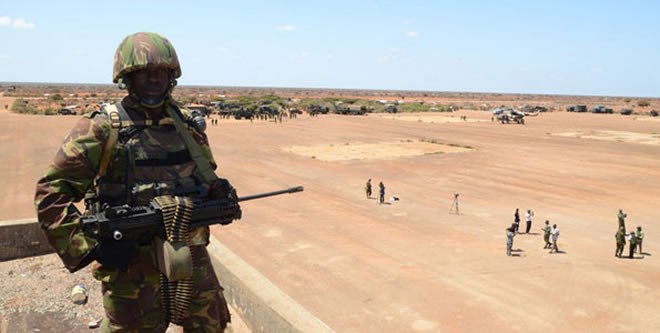

Monday, October 24, 2016
By KIARIE NJOROGE
The Europe Union has released Sh198 million to the Treasury as refund for Kenyan troops fighting Al-Shabaab militants in Somalia after a seven-month delay attributed to a verification hitch.
Treasury documents show that Kenya received the money in September with the last refund coming in February in a reimbursement that is meant to happen quarterly.
Kenya received Sh4.2 billion from the UN in the first seven months of last financial year against a claim of Sh6.4 billion, meaning the country is owed Sh2.2 billion. It expects to receive Sh6.4 billion in the year to June 2017.
The Treasury did not explain the delay, but earlier reports in the BBC indicated that payments for the 22,000-strong African Union force (Amisom) were being withheld over “accounting issues”.
Nearly 4,000 Kenyan soldiers are part of Amisom and the international community provides $1,028 (Sh103, 828) for each Amisom soldier each month; their respective governments then deduct about $200 (Sh20,200) for administrative costs meaning the soldiers are supposed to take home about $800 (Sh83, 628).
The soldiers receive the allowances through the government. The funds are only released to Amisom by the EU once accounts from the previous payment are signed off.
Kenya has previously faced delay in reimbursement of the money, which was linked to the UN’s insistence on verification of the claims.
In October 2011, Kenya formally sent 4,660 soldiers to Somalia after incessant attacks and kidnapping by Al-Shabaab militants within its territory.
A year later, the UN Security Council gave Kenya the greenlight to join the African Union Mission to Somalia, a decision that meant the Treasury would not bear the full costs of the incursion.
Amisom is an eight-year-old operation drawn from Uganda, Burundi, Djibouti, Sierra Leone and Kenya.
Kenya has in the past used its ambassador to the UN, Macharia Kamau, to demand the reimbursements, saying that failure to refund was not only “unacceptable” but also “unsustainable”.